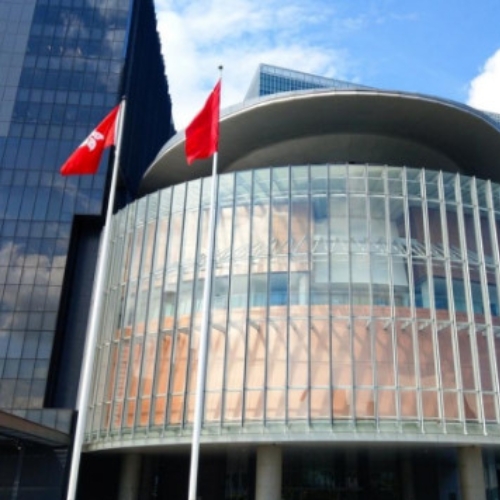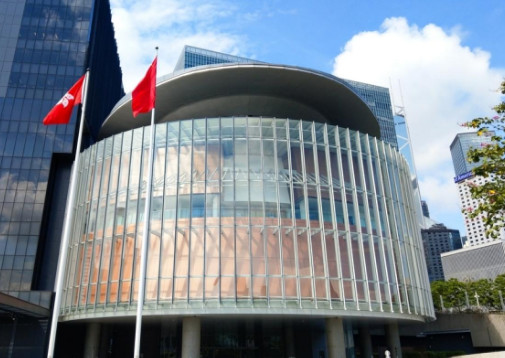Parochialism in the Post-1997 Era
After all, from a societal transformation viewpoint, a more appropriate slogan for Hong Kong after 1997 may have been “China’s World City”. This in turn could have been the basis for captivating and inspiring the minds of an entire generation with a best of both worlds approach. The decolonization of Hong Kong should have involved more education on the dangers of naïve parochialism to curtail its growth. But this lesson has not been learned. Instead, many of the post-1997 generation, as made abundantly clear during the protests, did not even view themselves as citizens of China; some proudly referred to themselves as non-Chinese. They openly sought to demonstrate an allegiance to the former colonial master and the USA, whilst simultaneously acting in an extremely parochial manner, even embracing a strong Cantonese chauvinism.
This was a result of policymakers being blind to the needs of decolonization and allowing parochialism to thrive even in policy circles. This was not helped by the fact that policymakers struggled to detect or address the major challenges facing the city, from housing to income inequality, and instead sought refuge in a global branding exercise that sustains a business-as-usual approach. A dysfunctional political system inherited from the departing colonial government did not help either.
With hindsight, it has become very clear that so many the of young minds of the 1997 generation were terrified about the future, sentiments which were unfortunately amplified by an education system that did not help them understand what the return to the sovereign meant - including the enormous benefits. They were thus confused about their identity and did not have a grasp of where the city sat given the context of a modern and rising China nested within a rapidly changing world. This is what post-handover parochialism within policy making circles produced, and it was the result of two interesting phenomena.
The first is a misplaced understanding of what independence and a return to the sovereign meant and what self-determination entails. This translated into a reactionary “go local” policy in tandem with a desire to please the sovereign at all costs, thereby not representing public demands and concerns. The second was the fear – or more kindly put, the inability - amongst those put into positions of authority to share their new-found powers with others, to seek diverse inputs to reimagine the city and be more inclusive. This local elite was out of touch with the need for a radical change and deaf to the concerns of the next generation and worked instead to maintain the status quo and appease the sovereign. This meant closing the doors to bold ideas – from housing to education reform and electronic road pricing to the diversification of the economy – and sidelining anyone not from elite circles or having non-mainstream ideas.
Although the history of the UAE is different to that of Hong Kong, its desire for change was accompanied by a great openness to ideas from all over the world. This was particularly so in the implementation of its vision for the future, which came from leaders who thought big and bold and were constantly in search of ideas to strive for a best of both worlds approach. They sought to attract the best minds to the nation.
By contrast, in post-1997 HK, critically needed policies got entangled in a war of attrition between political appointees, civil servants, and the legislature. This was a struggle between elites even if some claimed to be representing the people. There was within this struggle an accompanying and unfortunate tendency to use language to exclude people who could not speak Cantonese from being part of the key conversations. It was one feature of the “going local” approach and a very convenient one at that to exclude others as the elites fought a parochial war to establish their vision of the future.
It is important to understand that this critique is in no way suggesting a return to a colonial era approach where English was the language of the government and used to isolate the vast majority of local people. But if Hong Kong seeks to retain the claim of being Asia’s World City and position itself as such, then it cannot be parochial on the issue of language. It must therefore ensure that the English language is part and parcel of the city’s culture – a bit like Singapore – because whether one likes it or not, it is the world’s language for now. Post-1997 and in this new era of globalization, the city needs to retain a best of both worlds approach.
The result of this parochialism has been a dearth of bold new ideas for over two decades, a stagnation of critical thinking across the board, an over reliance on the same old echo-chambers of local elites and vested interests, many ironically with international networks. This ultimately led to the weakening over time of an essential and robust intellectual eco-system that any world-class city needs especially with regards to finding solutions to the numerous public policy challenges facing the city. Not everything to do with recovery and reinventing the city is about business and there aren’t business solutions to every challenge. The creation of this sort of non-progressive and even anti-intellectual environment is often also rooted in the insecurity and intellectual fragility of the ruling elite class.


























